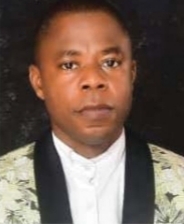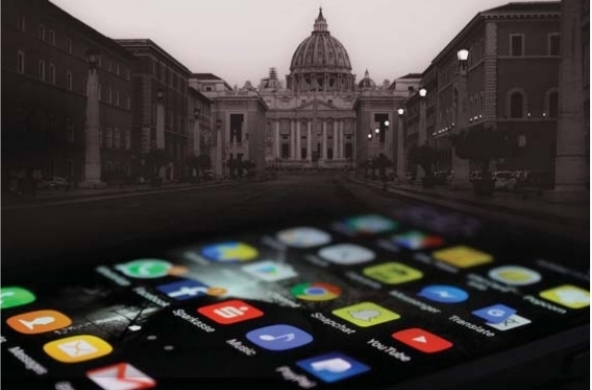
The media has often been called the fourth estate of the realm, standing alongside the executive, the legislature, and the judiciary. It earns this title not merely because of its watchdog function, but because of its unmatched power to frame and amplify issues, to make them visible, to give voice to the voiceless, and to draw attention to those often consigned to the margins of society. In our time, the modern individual instinctively takes everything to social media, convinced that there lies the most effective platform for expression, redress, and reform.
Yet, such unfiltered recourse to social platforms betrays either a lack of proper structures in the system being challenged or the failure of those structures to deliver. The Catholic Church, however, is no such system. Rooted in the promise of Christ—“I am with you always, to the close of the age” (Matthew 28:20)—and guided unfailingly by the presence of the Holy Spirit, the Church remains one of the most responsive and enduring institutions in the world. For two millennia, it has not only survived storms but has risen stronger through them, precisely because it possesses within itself the mechanisms to purify, to discipline, and to restore.
For every grievance, every injury, every disappointment, and every concern, the Catholic Church has established channels of listening, mediation, and judgment. What may appear hidden to some is, in truth, well documented: for every ecclesiastical offense there is an appropriate tribunal, for every abuse there is a canon to address it, and for every violation there is a sanction already written in the laws of the Church. Canon 1400 §1 of the Code of Canon Law is unambiguous: “The object of a trial is the pursuit or vindication of rights, the declaration of juridic facts, and the imposition of penalties for offenses.”

In other words, no wrong within the Church escapes the reach of her law. Be it the profanation of sacred vows, negligence in the administration of the sacraments, misconduct by clergy or religious, or the scandalous behaviour of the faithful, the Church possesses a legitimate and ordered means of response. These structures are not arbitrary; they are the fruit of centuries of discernment, codified most clearly in Canon Law, and made accessible through pastors and ministers of the Church in every part of the world. If one does not know the right path to follow, one need only ask a Catholic priest—anywhere, anytime— and guidance will be provided. This is not, however, to suggest that the wounded should be silenced or that evil should be hidden under pious veils.
On the contrary, the Church insists that the cry of the beaten must be heard and carried to the very heart of her structures, for there, at her epicentre, the voice of the voiceless finds true advocacy. The scandals of clerical abuse, which John Paul II called “a profound contradiction of the Gospel” (Sacramentorum Sanctitatis Tutela, 2001), were not ignored but met with painful yet decisive measures, including the laicization of offenders and the tightening of canonical penalties. Benedict XVI, in his Letter to the Catholics of Ireland (2010), openly acknowledged the wounds and called for “honest self-examination, inner purification and spiritual renewal.” Pope Francis has gone further with Vos Estis Lux Mundi (2019), mandating that every diocese establish systems for reporting abuse and holding even bishops accountable.
These are not the gestures of an institution bent on concealment, but of a mother who disciplines, heals, and restores. This is why taking issues of faith, discipline, or ecclesial life to social media is not only a misplaced move but a fundamentally unproductive one. It bypasses the very channels created for justice and correction within the Church. Worse still, it risks creating a theatre of ridicule where the sacred becomes trivialized, the holy is mocked, and grievances that deserve sober attention are turned into spectacles for clicks and comments. Social media thrives on noise, speed, and polarization, while the Church insists on truth, patience, and communion.
The two are not of the same spirit. The Church, in her wisdom, has always believed that correction is most effective when pursued within the Body itself, for the Body is not only human but divine, animated by the Spirit who brings life and unity. To take the Body of Christ and subject it to trial on platforms governed by algorithms and applause is to betray a lack of faith in the very promise that the gates of hell shall not prevail against it (Matthew 16:18). The faithful must resist the temptation of turning the Church into a defendant in the court of public opinion, when in truth she already carries within herself the tribunal of Christ. The challenge of our age is not that the Church lacks remedies, but that too many of her children have forgotten the paths of recourse that lead to them.
To rediscover these paths is to rediscover what it means to be Catholic: to trust that Christ’s Church is both mother and teacher, both shepherd and judge, both merciful and just. In her, nothing is left unattended, for nothing is beyond the gaze of the One who founded her. For this reason, dear Catholics, let us not run to social media as if the Church were powerless. She is not. Rather, let us trust the instruments she has given us—priests, bishops, tribunals, canon law, councils, the holy See and above all, the Spirit who guides her into all truth. It is there, not on the screens of the digital agora, that redress is found, healing is given, and justice is done.
Happy birthday to Most Revd Dr. Matthew Hassan Kukah, Bishop of Sokoto Diocese.
– Fr. (Dr.) Okhueleigbe Osemhantie Ãmos is a priest of the Catholic Diocese of Uromi and a Lecturer at the Catholic Institute of West Africa, Port Harcourt, Nigeria.





